Pupils’ hand hygiene
Hand hygiene is an easy and effective way to mitigate the spread of germs and diarrhoeal diseases, and to keep children healthy. When pupils have good health, they do not miss school or other activities. The hands4health project tackles this issue by targeting school children from public schools through the practices of safe hand hygiene behavior.
Overview of the pilot phase
As part of the piloting activities of hands4health in 2022, Terre des hommes (Tdh) conducted focus group discussions (FGDs) with school children aged 10-12 years in two primary schools in Nigeria: Maisandari Alamderi and Dalori Estate. The FGDs were carried out in June, within the framework of the RANAS behaviour change campaigns, and aimed to measure the pupils’ previous knowledge, behaviours and social norms regarding handwashing and hand hygiene.
In July, Tdh installed five Gravit’eau handwashing systems in the two aforementioned schools. The goal was to ensure that children: (i) Have access to handwashing facilities at the schools; (ii) Maintain hand hygiene practices in key situations (e.g., before eating and after visiting the toilet); and (iii) Have soap available for handwashing. The Tdh team also supported both schools with sanitation cleaning materials, such as disinfectant, brushes, brooms, detergents, etc.
During the school visits and observation monitoring, Tdh observed that the provision of handwashing devices was not the only pressing need of the two schools. The need for children to have access to safe sanitation facilities also became very clear.
Pilot RANAS behaviour change campaigns
The behaviour change pillar is an integral component of the hands4health initiative. Based on the RANAS approach, it will systematically develop and test behaviour change campaigns targeting hand hygiene behaviour in health care facilities and schools.
The piloting of RANAS behaviour change campaigns took place in Nigeria from October to November, targeting the Maisandari Alamderi and Dalori Estate primary schools. The campaigns included a variety of activities, to enable pupils to understand the impact of handwashing in key situations and the dangers of bad hand hygiene practices.
Soap making
Children had fun and learned how to make soap from soap flakes and scraps. The activity developed their confidence that they can make their own soap for handwashing, and that it can be shared with their families and friends, either at home or school.
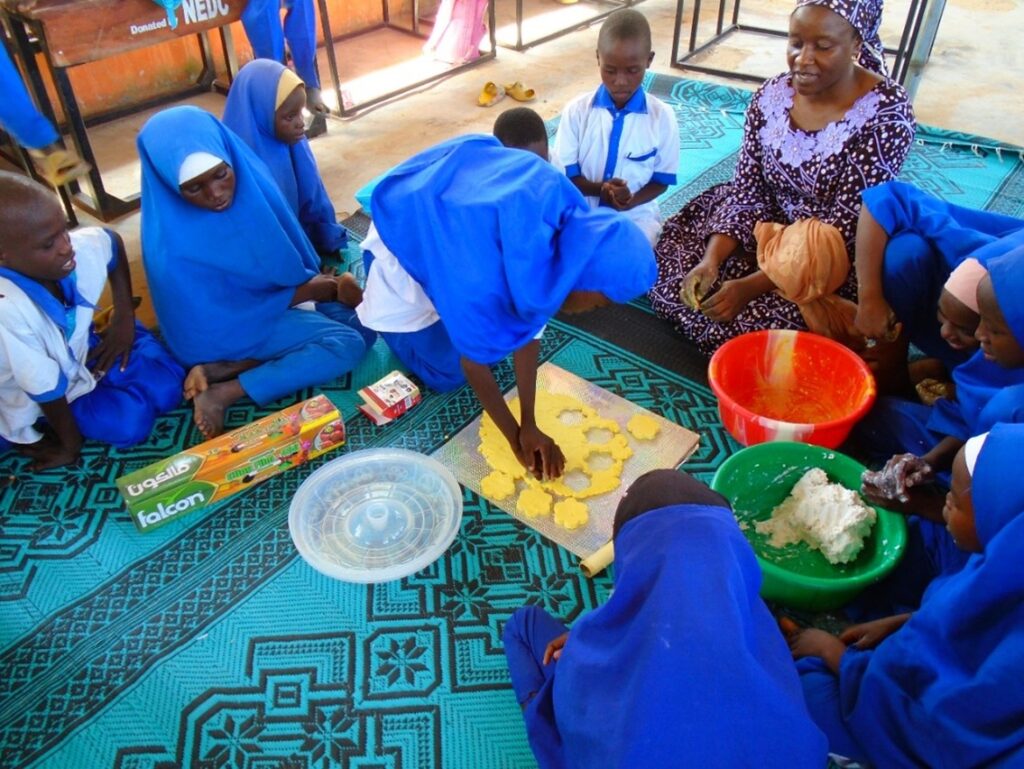
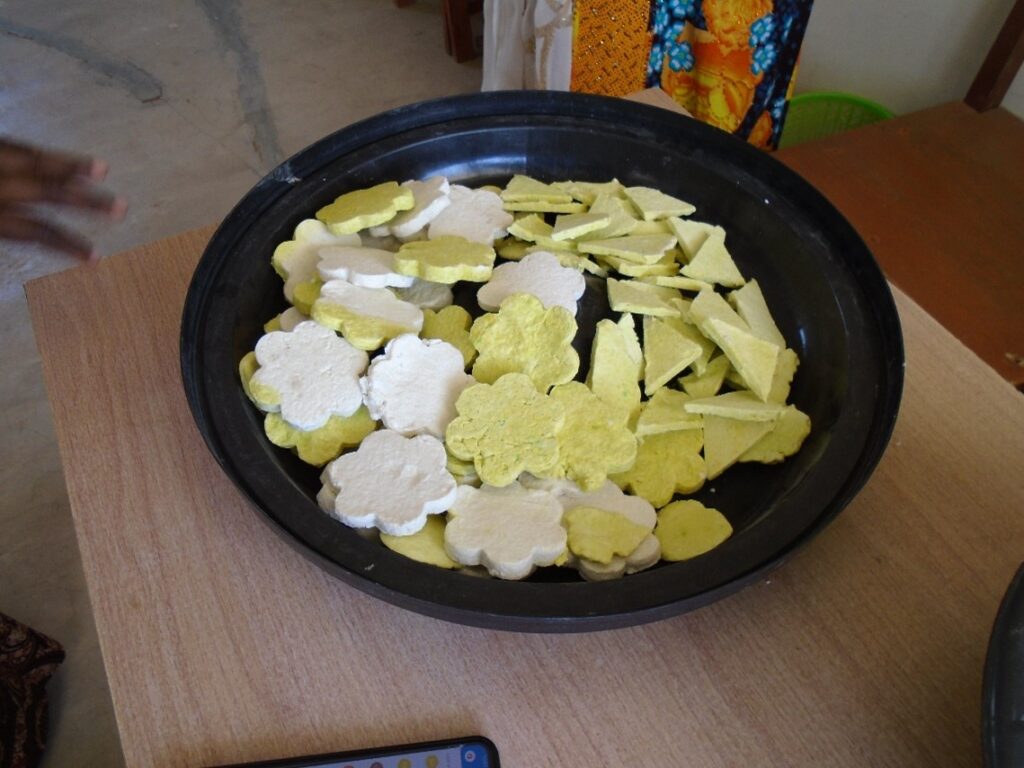
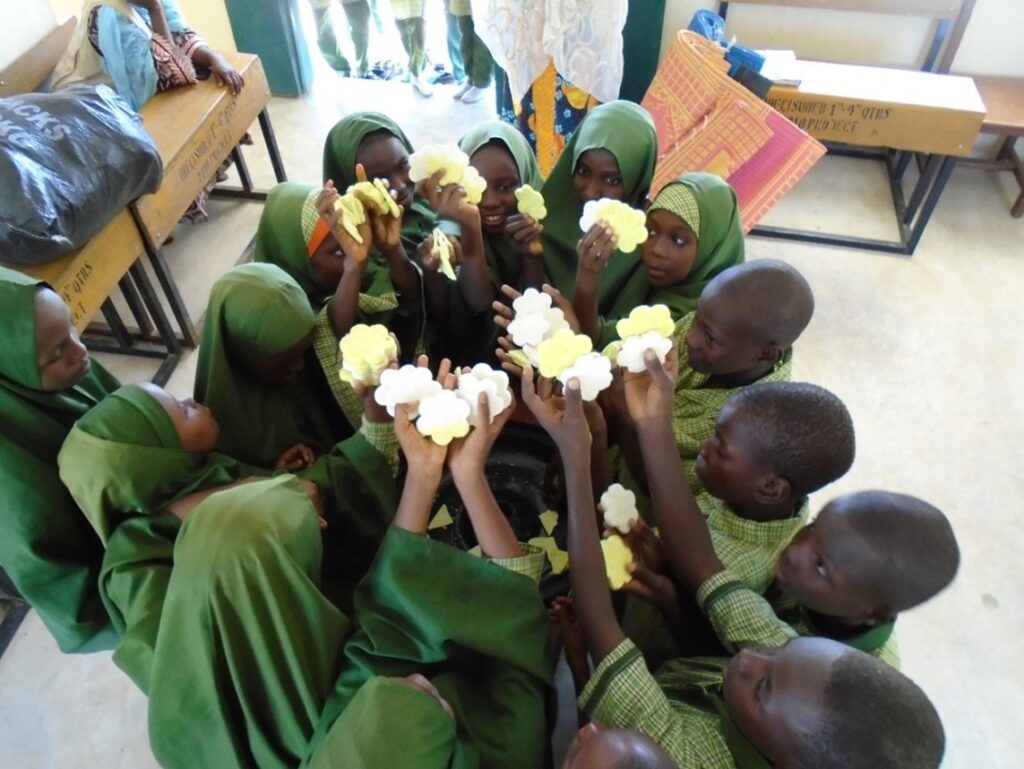
Puppet show
Three puppets took the children on a hand hygiene journey: Kibobo, Usman, and Ahmad. Kibobo and Usman are confident dolls who encourage and support their sad friend, Ahmad, to wash his hands. This show educated pupils on the importance of handwashing and hand hygiene behavior. It developed and brought out the courage of those who feel less confident in relation to hand hygiene practices.
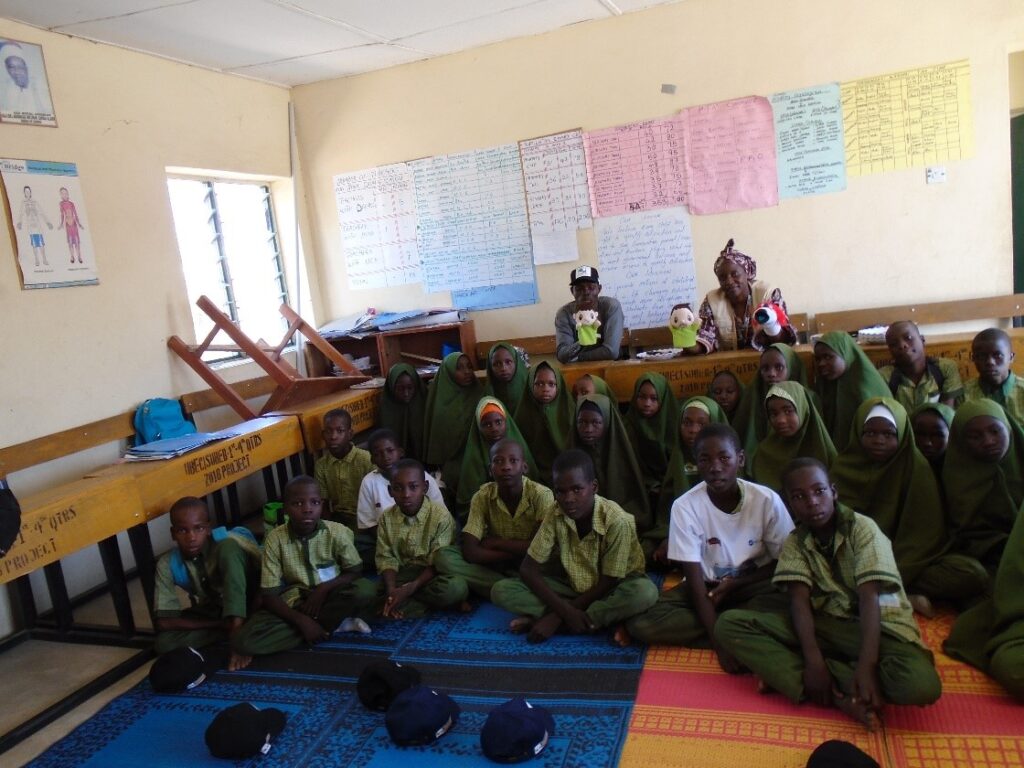
Soap chasing pepper
In this activity, children learned that hands become easily contaminated with germs and dirt. The soap chasing pepper exercise brightened their knowledge and ideas on how hands contact germs and how handwashing with soap helps to break the barrier of contamination.
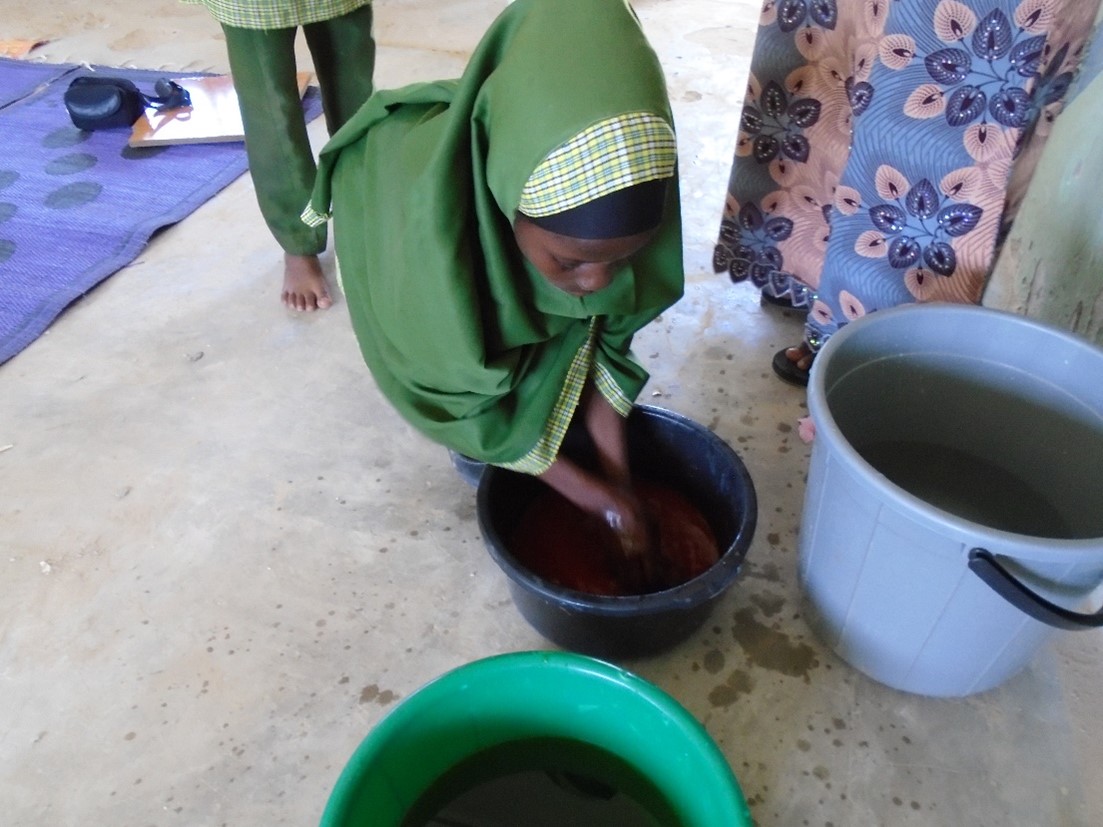

Wall of handwashing
The wall of handwashing is all about having fun, while stamping hands on the walls with different colors. Each palm is a statement – it indicates that the child has committed to washing his or her hands by putting their palms in colors and stamping them on the wall of handwashing.
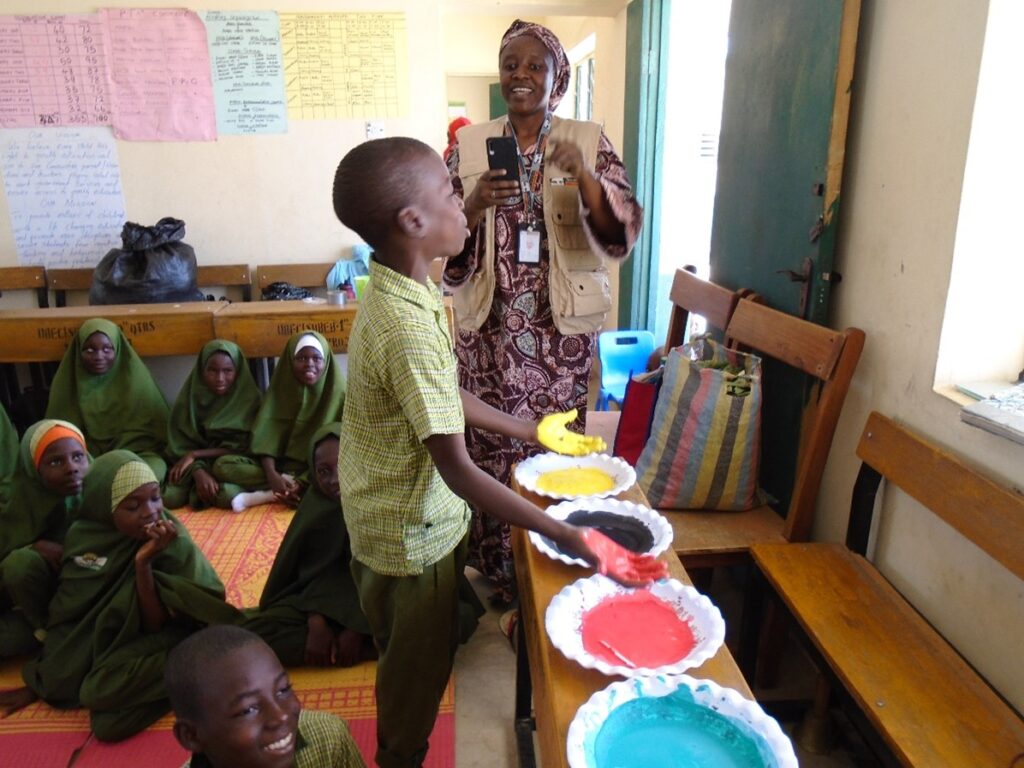
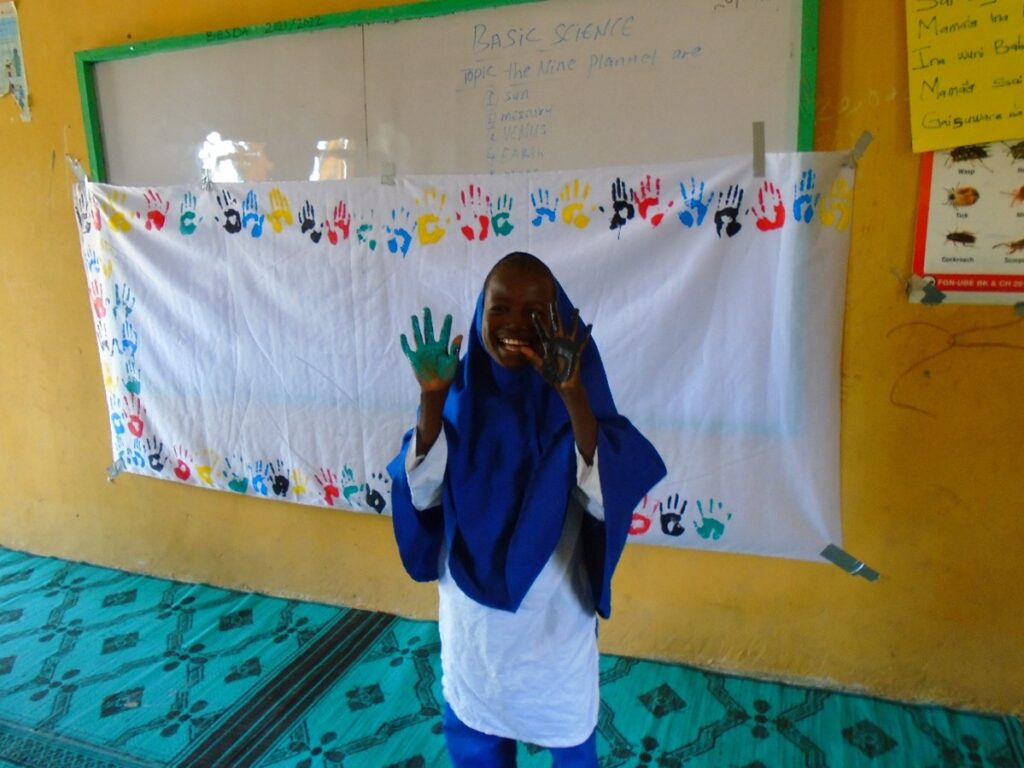
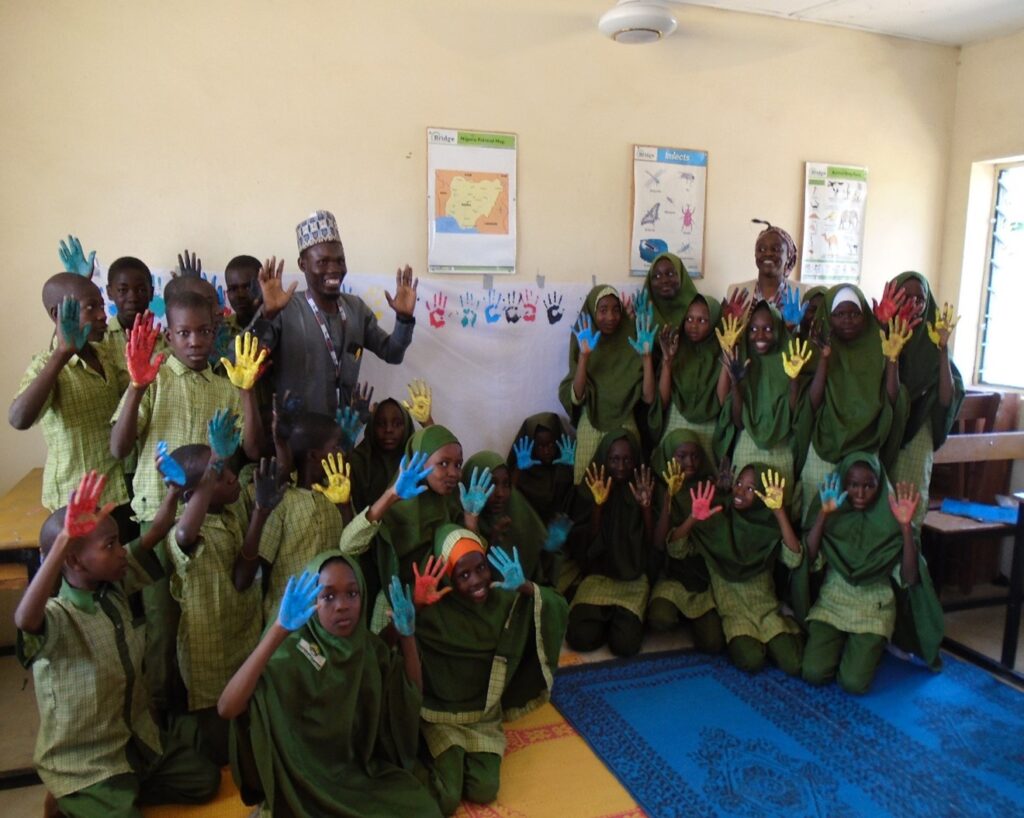
Handwashing buddies
For this activity, students were split into groups of handwashing buddies. Together, they needed to remind each other of washing their hands. Each time after handwashing, the group carried out a ritual, such as a dance, handshake, etc.
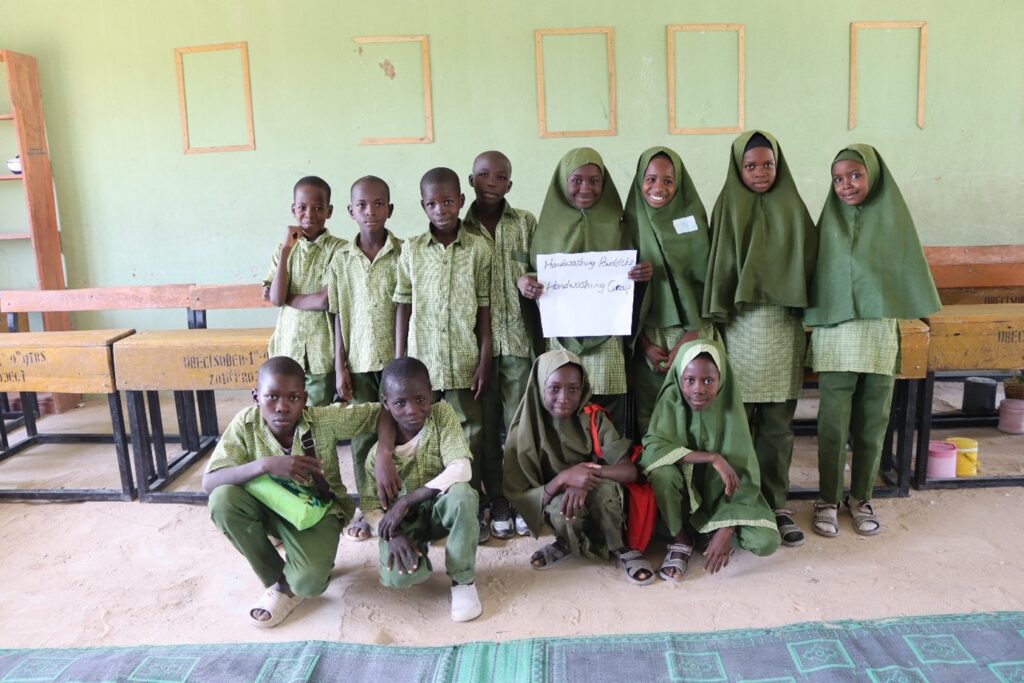
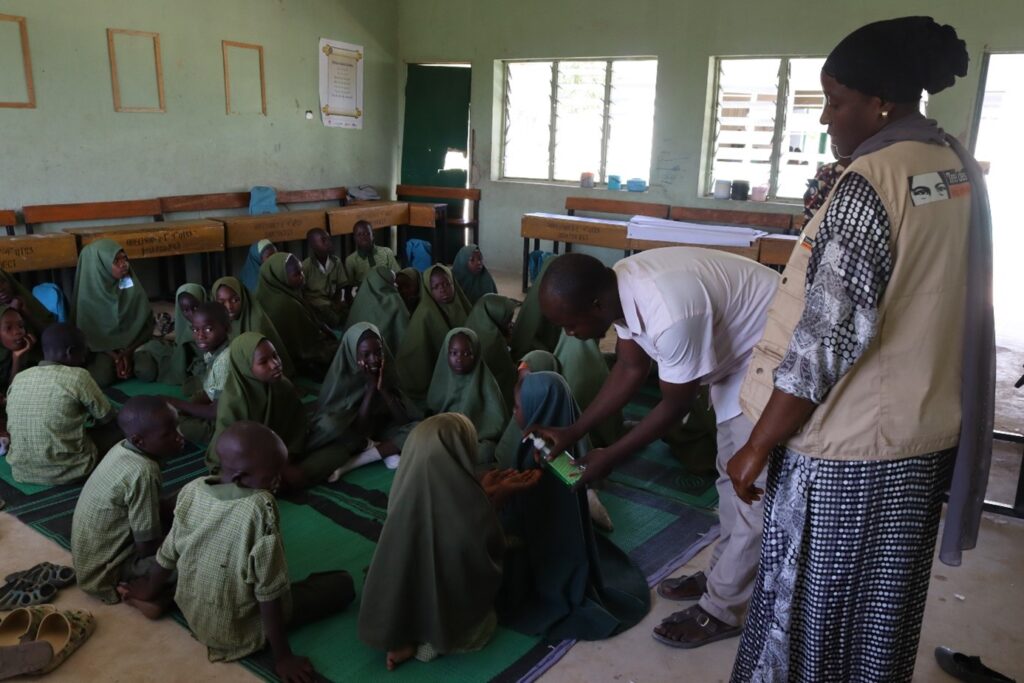
Fancy sink
The children decorated the sink at their school with colourful ornaments. The decorations are intended to help them to remember the acquired handwashing behaviours, and to trigger them in the right moments.
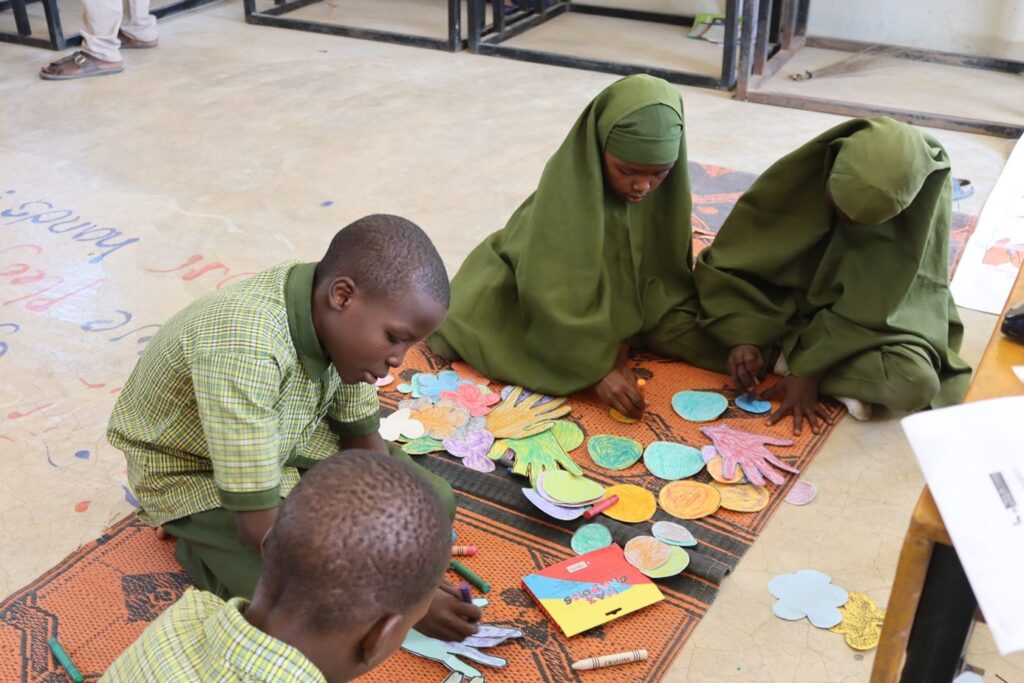
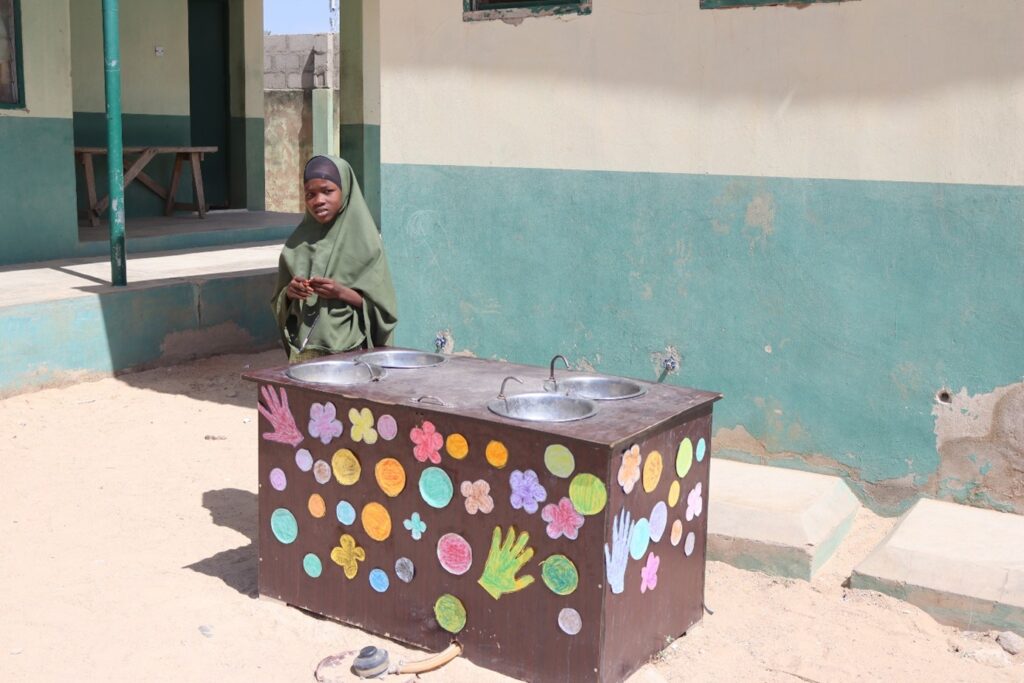
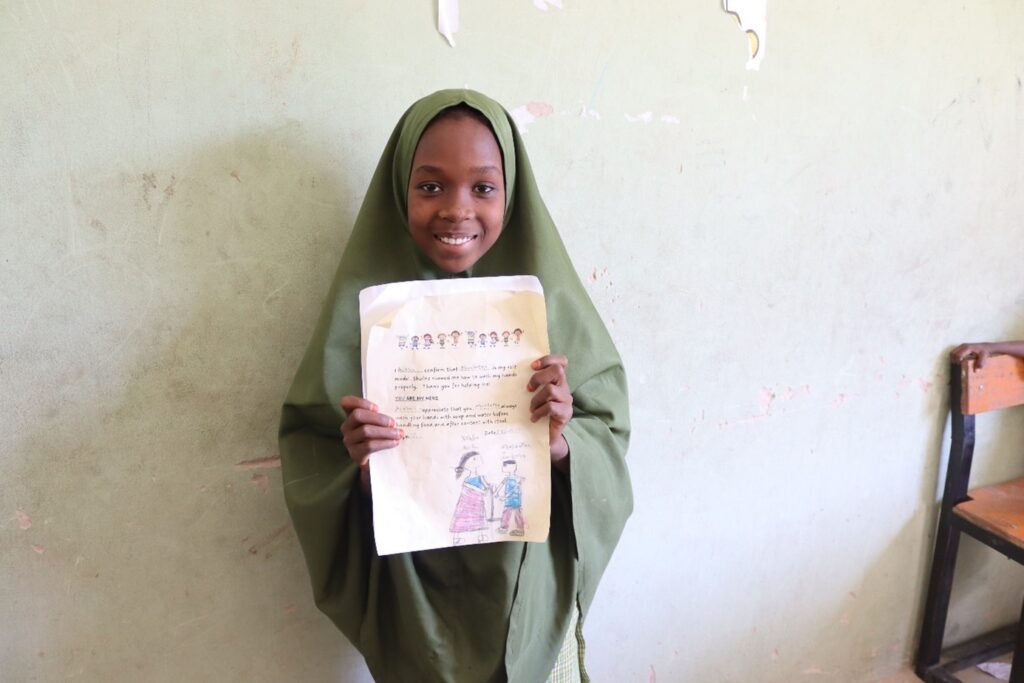
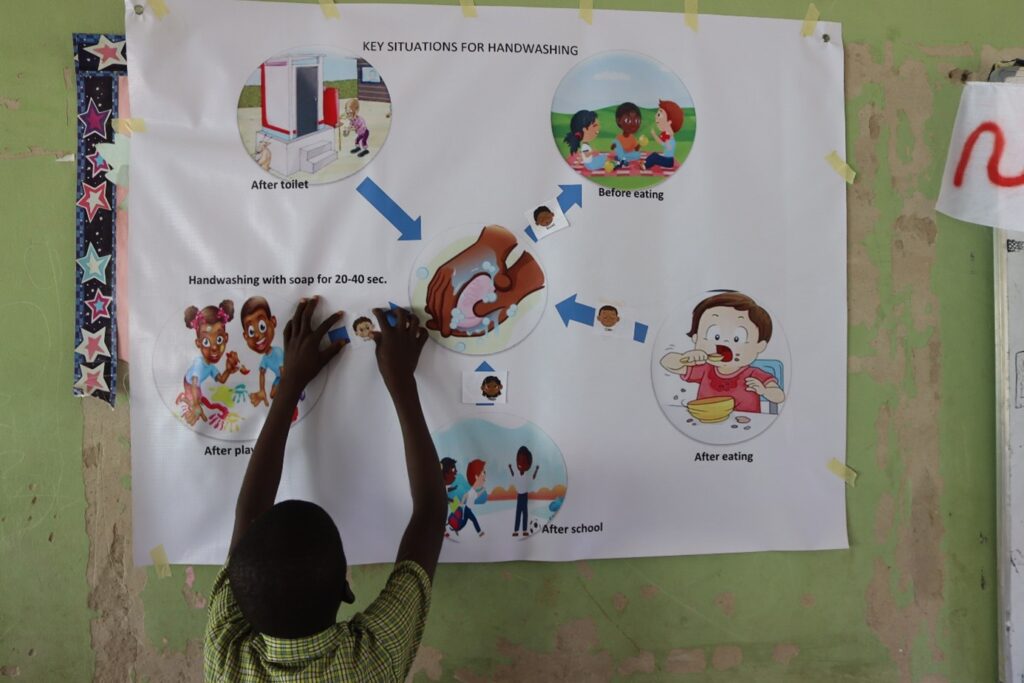
Raise the flags
In this activity, the class created a large flag, pledging to wash their hands. The flag celebrates their committment to better handwashing and hand hygiene practices.
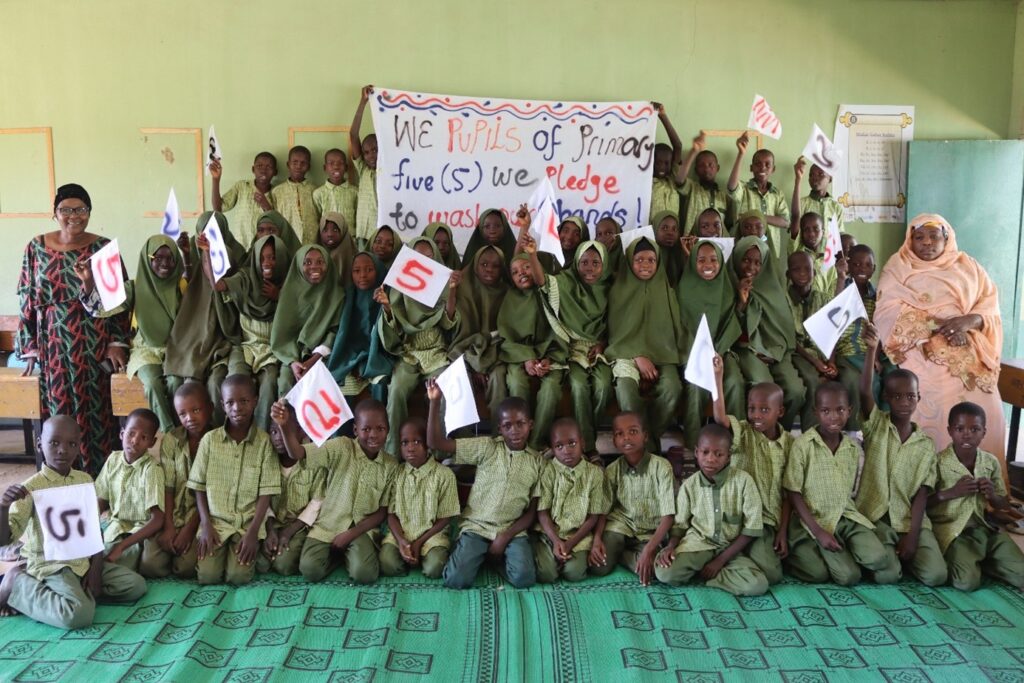
Looking forward
During the implementation phase of the project, 13 public schools will be selected within the local government areas (LGAs) of Maiduguri and Jere. These schools will receive hardware (2 Gravit’eau handwashing stations per school) and software components (RANAS behaviour change activities), and will be compared against a control group of another 13 schools. The latter will only benefit from the handwashing systems after the end of the intervention. The project will target a group of students selected randomly from the schools, within the age group of 10-12 years.